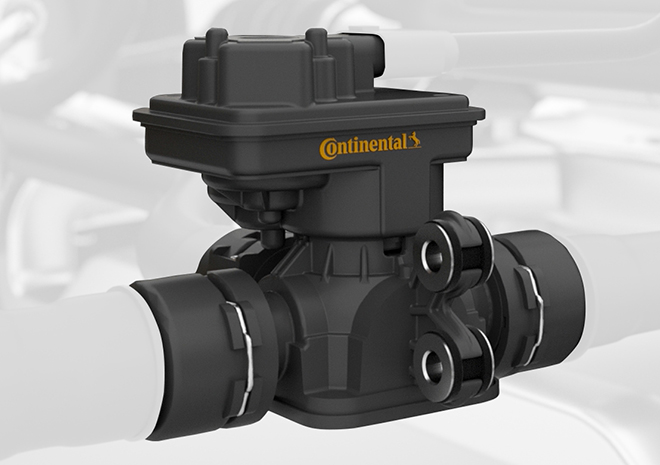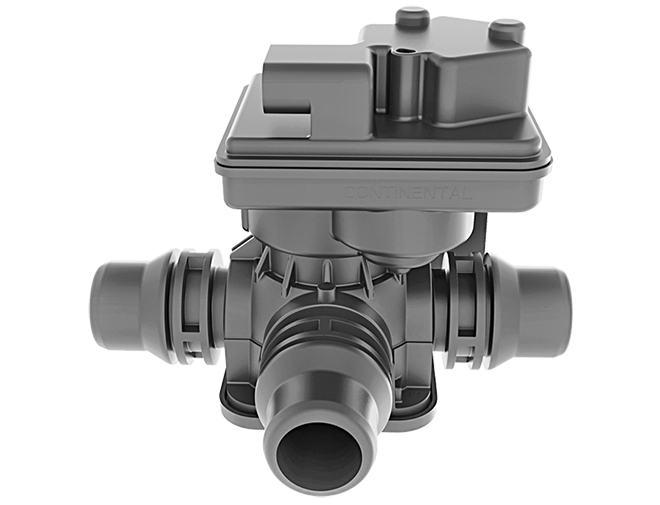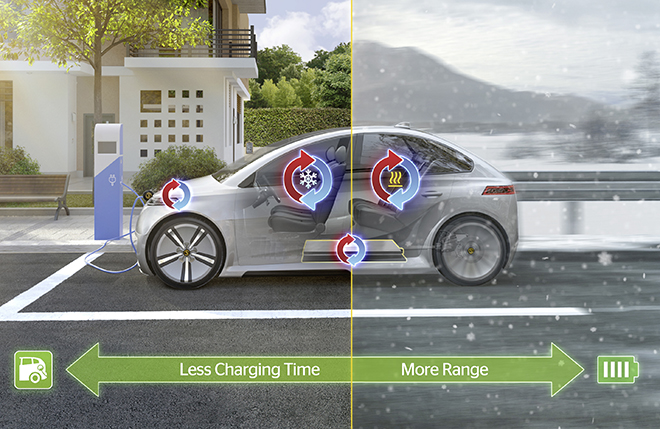Automotive tech specialist Continental has introduced several thermal management (TM) technologies for increasing EV efficiency during summer and winter. This portfolio includes sensors, BLDC-driven pumps, hydraulics and valves. The company also produces smart lines and hoses paired with special sealing solutions. Continental claims that its systems can increase EV range by up to 25% in -10° C conditions.
Normally, an EV’s range can drop by 40% at -10° C as compared to 20 or 25° C. Several small changes at these temperatures can mitigate much of this loss. Continental’s Coolant Flow Control Valves (CFCV) are designed to seamlessly switch between heating and coolant circuits to provide pre-conditioning to battery and drivetrain components when needed. The system can cycle between two and four coolant circuits thanks to its actuator, which uses a compact brushless motor controlled by an intelligent positioning system. Another technology, Smart Rubber, gives its lines and hoses sensor capabilities that complement these TM control systems. The complete package is designed to be modular and reactive to many environmental conditions.


“During winter and midsummer – when there is a high demand for heating or cooling – the range of an electrified vehicle is considerably lower because the electric energy for heating or cooling is taken from the Li-Ion battery as well. For instance, at -10° C up to 30 % of the stored electric energy is needed for heating purposes. Thermal Management serves to facilitate as much heating and cooling as possible without draining the battery,” says Continental executive Peter Biber.


Source: Continental



















































